This “Special Edition” Blu-ray from Severin Films is currently available for purchase.
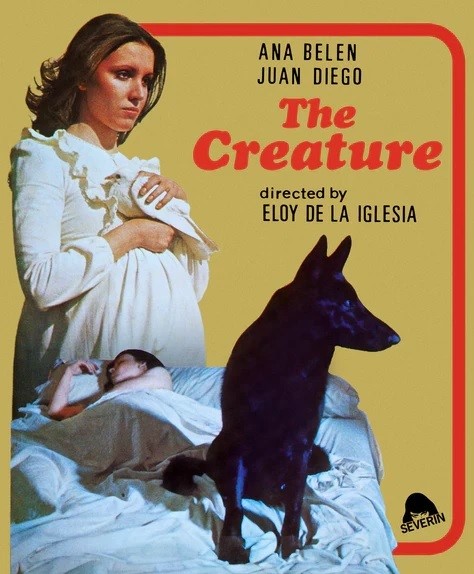
Very recently, Severin Films released the chilling Spanish political thriller, A Dog Named… Vengeance, which followed an unstoppable German shepherd hunting down an escaped political prison during a fascist dictatorship. But that wasn’t the only title about a dog that appeared in Spanish cinemas in 1977. There was another drama with activist overtones and, well, a decidedly odder take on canines.
Severin Films is now releasing this title on Blu-ray. The Creature aka La Criatura is from Eloy de la Iglesia, a noted moviemaker in his homeland who also pushed boundaries. In fact, his 1980s titles about youngsters dealing with drug addiction and life on the streets have been hugely influential in Spain and are highly regarded. While he is best known in this part of the world for the graphic but effective 1972 shocker The Cannibal Man aka La Semana del Asesino, this picture had a much more difficult time finding audiences abroad. And it isn’t difficult to see why. Even though the movie isn’t graphic, its story elements, including that of a possible love affair between human and animal, are certainly out there. Severin Films is now presenting the movie on disc scanned in 2K from the original negative.
So, the story involves popular television show host Marcos (Juan Diego) and his wife Cristina (Ana Belen). The marriage is in a terrible place due to issues with fertility. As a result, the workaholic media personality appears to be ignoring his spouse in order to schmooze with an extreme right wing political group (who are essentially new stand-ins for Francisco Franco). It’s clear that Marcos is an opportunist ready to acquire more wealth and power by supporting and even becoming a member of the fascist party.
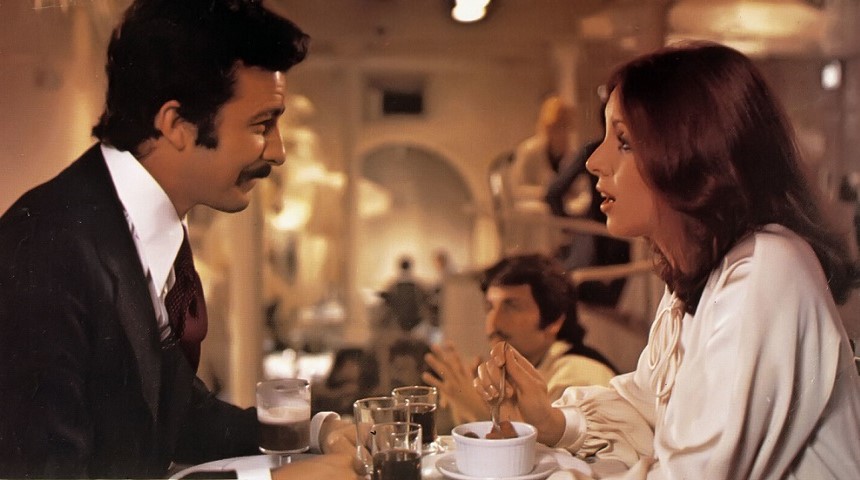
When Cristina discovers that she is pregnant, there is some reconciliation between them. Sadly, a miscarriage that may or may not have been caused from an interaction with a German shepherd results in more issues. Marcos takes Cristina on a beach vacation to recover. While there, a different German shepherd begins following them around. Cristina asks that they take the dog, and Marcos reluctantly agrees. She calls the pet Bruno, and as their relationship suffers more setbacks, Cristina gets closer and closer to the animal while Marcos finds himself on the outs with every being in the home.
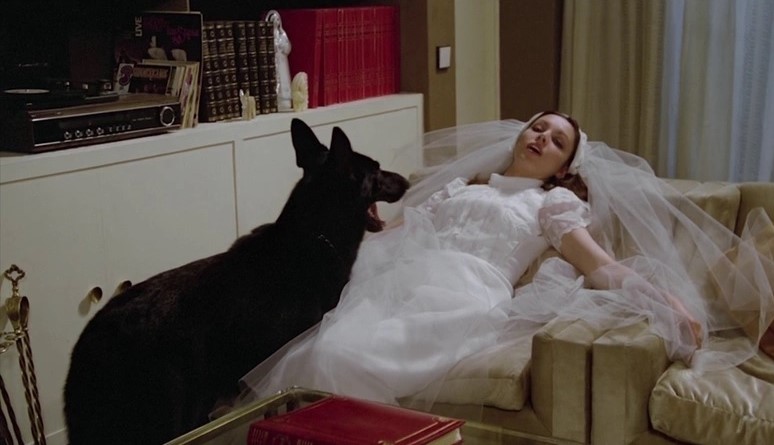
As mentioned previously, the dynamic between the woman and dog does seem unhealthy and downright weird. However, and I can’t believe that I have to write this, there is nothing explicit that occurs between the wife and her pet. There are certainly allusions to the lady becoming far too close to Bruno, as well as an odd dream sequence that depicts Cristina’s jealousy when Marcos has the dog removed from the home. Still, this is a melodrama that, in a rather oddball way, may just be suggesting that Marcos isn’t much different from a dog. And at least Bruno really does care for Cristina.
The political backdrop, including Marcos trying to ingratiate himself into the fascist party at the expense of all those around him, are effectively relayed. The husband also goes to the Catholic Church for advice about the unwanted pet, and they show themselves to be deeply flawed as well. There are plenty of tense and creepy moments as Marcos deals with a potentially violent Bruno. And Marcos doesn’t respond well to stress either, eventually trying to embark on an affair with co-host Vicky (Claudia Gravi). When she changes her mind, he gets drunk and rapes Cristina. The spouse does have one good idea in regards to the pet, which involves purchasing a female dog for the home to distract Bruno. The jealous Cristina does not respond well to this, and the new arrival mysteriously dies only a handful of days later.
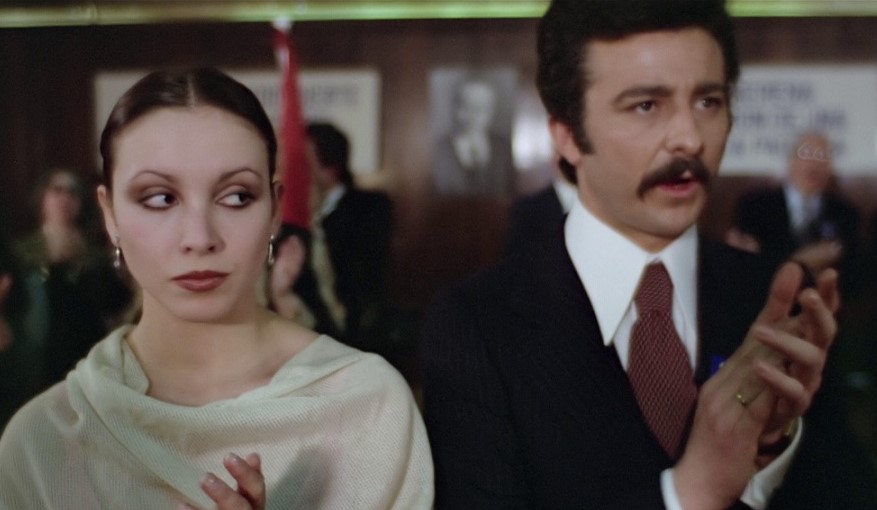
So, there is some interesting political material and a grimly amusing war of wills between the nasty TV host and Bruno. It’s beautifully shot as well, although the subject matter doesn’t exactly make the movie light or easy viewing. Cristina isn’t the most relatable character either, and some of her actions make her difficult to root for as well.
And, of course, there are a few amusingly out-of-date comments. When Cristina visits a doctor, she’s advised to try and keep her smoking down to less than 9 or 10 cigarettes a day (for the sake of her unborn child). It certainly was a different era.
In the end, this is a very strange movie and one that was never destined to reach a large audience. For me, it didn’t have the same kind of compelling effect as A Dog Called… Vengeance, but it is an interesting curiosity that takes viewers down a deeply strange path.
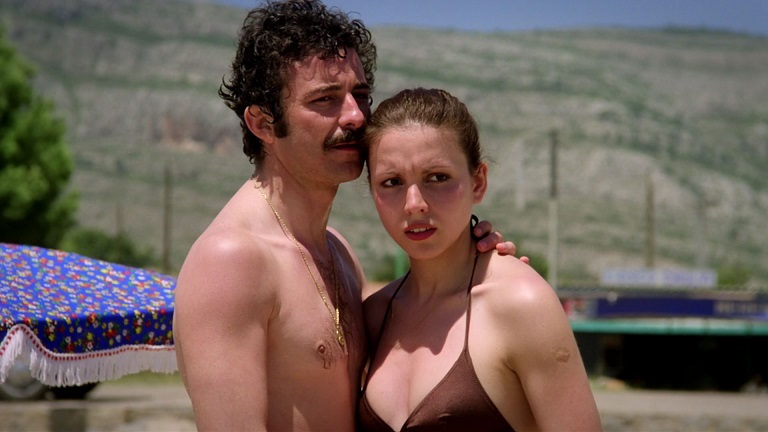
Despite the fact that the disc presents a 2K picture scan from a negative, the movie looks terrific. The beachside photography is incredibly clean and gorgeous on this release (which was played back upconverted on a 4K Ultra HD player). The coast of, presumably, the Mediterranean Sea is lovely to behold and the TV studio and political rally scenes also pop off of the screen. Even the loud blue tiles and cabinets in the kitchen of Marcos’ and Christina’s condo are striking. This is a very impressive transfer.
The disc also comes with a few notable extras. The first is an introduction to the movie with director Gaspar Noe (Irreversible, Enter the Void) that was recorded at a festival screening of the film in France. He tries to explain to the audience what they are about to witness and notes some of the film’s unusual elements.
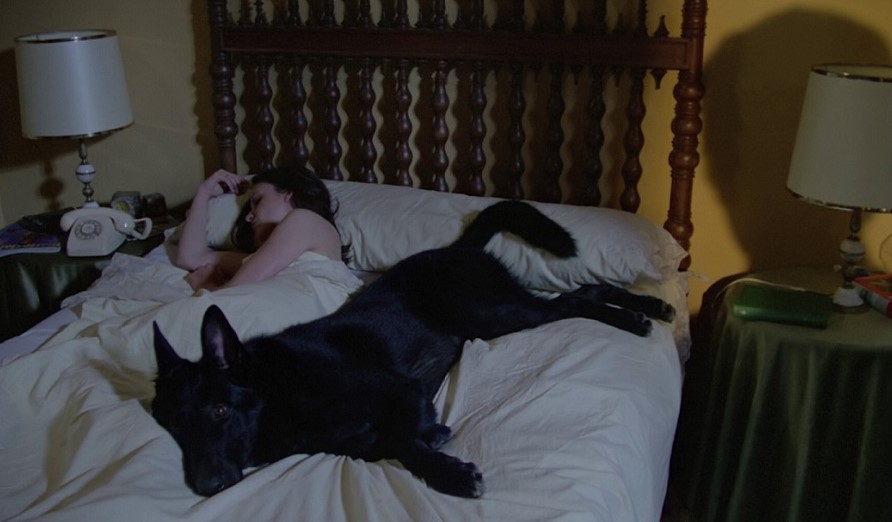
Additionally, there is an extended interview with Noe about how he discovered the films of Eloy de la Iglesia. Like most people, he first watched some of the moviemaker’s more readily available titles, like The Cannibal Man, and then tried to hunt down other titles. Noe eventually did find them, but it took lengthy searches on Ebay and other sites for rare discs and VHS tapes. The director also read a book on the director, which served as a great help in, to some degree, understanding the man who made these odd pictures and just what they all mean.
There is also a discussion with assistant director Alejo Loren, who shares stories of working on the set. It’s an interesting discussion that doesn’t shy away from some of Eloy de la Iglesia’s own issues and problematic impulses and addictions. According to him, the filmmaker could be quite temperamental, but notes that they became friends anyway. He also mentions spending time with the filmmaker fighting for gay causes, and noting the influence it had on his creative work. Loren mentions that the fall of the fascist regime allowed the director to use his newfound freedom. This meant dealing with sexuality, drug use (in other films) and occasionally violence in a direct and explicit manner. He notes the time was right for these kinds of movies after the fall of Franco, since after 40-ish years of censorship, audiences were willing to see boundaries pushed and broken.
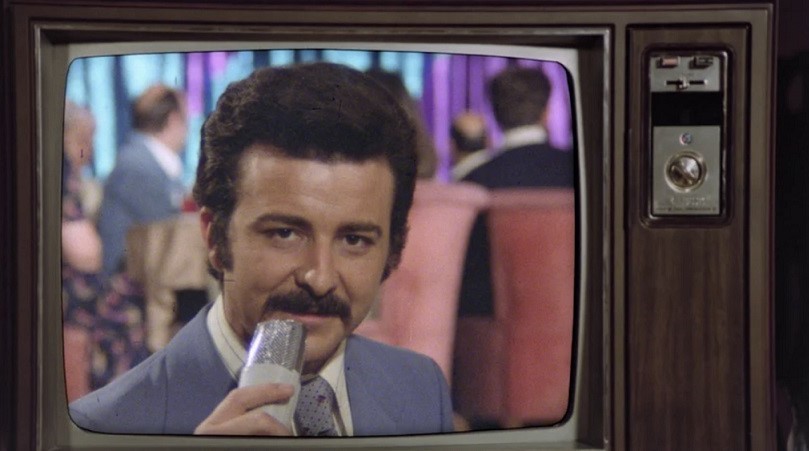
In fact, the subject matter of this movie didn’t even generate controversy during its original run in Spain. I’ll be frank and admit that The Creature isn’t necessarily something that speaks to me. But it is a very well-made movie, and the disc delivers a great image and some enlightening bonuses. If you’re a fan of the filmmaker, you’ll likely be impressed with this Blu-ray.


